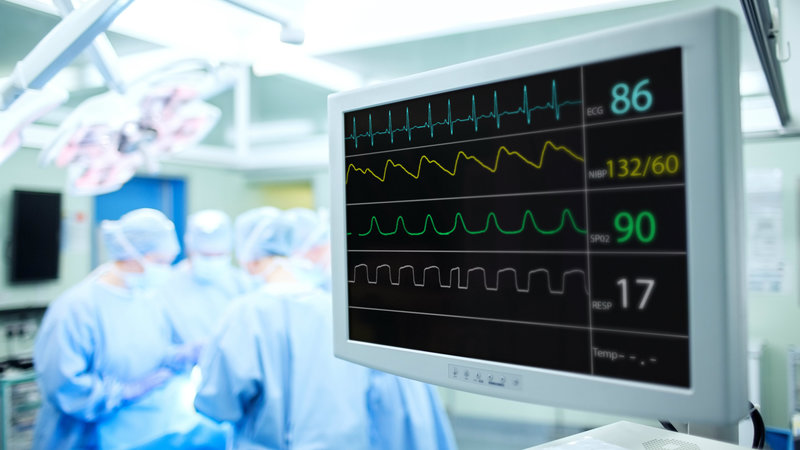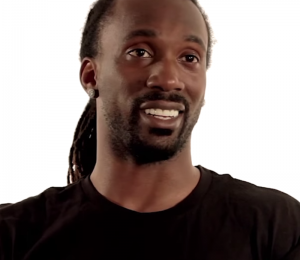
The paramedics rushed him into the trauma bay, but sorrow muted their earnestness. We received the patient with swift hands, our motions crisp and automatic, and yet dread weighed down our hearts.
He had sustained a gunshot wound to the head. Paramedics found him unresponsive, not breathing. A stiff tube jammed into his trachea elicited no response — not even a cough or a gag.
He was barely a teenager.
As I examined the entry wound, I struggled to focus on protocol, rather than on the horror of it all. When I reached his eyes, however, I broke down. His pupils had dilated to crowd out all color. When I flashed a penlight into them, they remained fixed, impervious to all glimmers of life.
A battery of tests confirmed brain death. When we met with his mother, his blood pressure had precipitously declined. His heart rhythm adopted an erratic and ominous pattern on the monitor. After her initial tears, she leaned toward him and searched his face. The intensity of years of laughter, fears, struggles, and joy illuminated her gaze. Most of all, her eyes shone with tenderness.
She reached for his hand. “God blessed me with the most wonderful child,” she said. “And now he’s called him home.”
Her words echoed in my mind months later, when another teenager arrived to the ICU with severe head trauma. His exam and tests also pointed to brain death. Another boy we could not save. Another heart-breaking conversation.
I sat with the patient’s father, and leaned forward to narrow the expanse between us. My colleagues and I delivered the grim news in measured beats. In contrast with the gentleness and acceptance I’d witnessed months earlier, he glared back at me.
“No,” he said, “He’s going to live.” He pointed an index finger upward. “From Jeremiah: nothing is too difficult for God. With God all things are possible.”
The details of these cases were equally harrowing, the impacts equally devastating. Clinically, the patients mirrored each other. In both instances, parents spoke words demonstrative of faith. Yet their remarks reflected opposite ends of a spectrum, ranging from unwavering acceptance of God’s sovereignty, to fervent faith in the power of prayer. How can we reconcile such disparate responses?
Brain Death or Coma?
Although these parents’ individual stories, griefs, and relationships with God influenced their reactions, confusion about brain death also contributes. Popular media often uses the terms “coma” and “brain death” interchangeably, despite marked differences between these conditions. Tragic, controversial cases (such as that of Jahi McMath) further confound understanding.
Perhaps most unsettling, from the doorway, patients with brain death appear indistinguishable from those with reversible injuries. Both types of patients may require a ventilator to support their breathing. Their hearts still beat, and initially their skin may feel warm. Differentiating between brain injury states requires neurological examinations and adjunct tests, information few loved ones feel equipped to decipher in the midst of devastating news.
When injury affects both hemispheres of the cerebral cortex, or areas of the brainstem responsible for arousal, coma results. In coma, patients are unconscious and unaware of their surroundings. They may breathe independently, but they do not respond to any stimulation. Slightly less damage may produce a vegetative state, in which patients have sleep-wake cycles, and may open their eyes, but do not respond to the environment. They are wakeful, but not aware.
Although coma and vegetative state often carry a poor prognosis, patients have potential for recovery. They may depend upon nursing and medical care for the rest of their lives. Their recovered function may range from dramatic, to minimal, to nothing at all. Yet with functioning regions of the brain, recovery is possible. Patients with brain injury are very much alive.
Brain death constitutes a different category. In whole brain death, injury is so catastrophic that all brain tissue dies. Unlike coma and vegetative state, tissue injury is total and irreversible. There is no potential for recovery.
Brain death is death.
Why the Confusion?
Prior to advances in intensive care, brain death and cardiopulmonary death happened concurrently.1 When the brainstem dies, breathing ceases. Oxygen levels plummet, and the heart stops. In modern ICUs, however, mechanical ventilators interrupt this process. Brain-dead patients have no functioning brain cells, but if a ventilator provides oxygen, the intrinsic cardiac pacemakers — separate from the brain — drive the heart to beat for a time.
In the majority of patients, this time remains brief. As the autonomic centers within the brainstem fail, derangement of blood pressure and heart rhythm occurs. Failure of the hypothalamus and pituitary gland, regions of the brain that regulate hormones, further contributes to instability. Hypothermia ensues. Most brain-dead patients develop cardiovascular collapse within hours to days, in spite of aggressive ICU interventions.2
For a parent at the bedside of his beloved teenager, whose cheeks still sport the ruddy blush of toddlerhood, this reality can seem impossible to embrace. How can Scripture guide us, when a physician utters the words we dread to hear? Modern medicine may make it clear that brain death is death, but only God can give us real hope.
Sanctity of Life
The Bible teaches that life is God’s sacred gift to us. “He himself gives to all mankind life and breath and everything” (Acts 17:25). As our Creator, he formed our humanity from the dust, and fashioned us in his own image (Genesis 1:26; 2:7; Psalm 139:13). He charges us to protect the life he has created (Genesis 2:15; Exodus 20:13).
A brain-death determination often requires families to trust the assessment of a physician whom they have never met. Given the stakes, they should feel empowered to ask questions. Their loved ones are God’s handiwork (Ephesians 2:10). As those who cherish God’s workmanship, families have every right to understand the death of their beloved in detail.
Physicians, in turn, must guard against misdiagnosis, particularly as the United States has no national, evidence-based standards of brain-death determination. Brain-death determination practices vary across regions and institutions.3 With God’s sacred gift in the balance, we must do better. And when questions have been asked, due diligence has been done, and the diagnosis is accurate, we can receive brain death as clarity from God about what he is doing.
Death Comes to All
Death is a necessary consequence of the fall, and God ordains the manner and timing. From Romans, “just as sin came into the world through one man, and death through sin, and so death spread to all men because all sinned” (Romans 5:12).
Even when news of brain death threatens to crush us, as we cry out to God for mercy, we cannot forget his sovereignty. God puts to death, and brings to life (Deuteronomy 32:39; 1 Samuel 2:6; Psalm 90:3). The psalmist writes, “In your book were written, every one of them, the days that were formed for me, when as yet there was none of them” (Psalm 139:16). Although God answers prayer, if he does not issue a life-saving miracle, we must accept his will (Psalm 31:15; Matthew 26:36–45).
In Death, New Life
Even death does not mark the end. In the wake of the cross, we find an everlasting hope. Even while we mourn, and while we wrestle with anguish, we rest assured that Christ has already overcome and has swallowed up death in victory (1 Corinthians 15:54–55). Those who fall asleep in Christ will rejoin Christ in resurrection (1 Thessalonians 4:13–14).
Paul writes that “neither death nor life, nor angels nor rulers, nor things present nor things to come, nor powers . . . will be able to separate us from the love of God in Christ Jesus our Lord” (Romans 8:38–39). And that truth sustains us, beyond the horror, beyond the tears, into the arms of our Savior.
1 Machado C, Korein J, Ferrer Y, Portela L, de la C Garcia M, Manero JM. “The concept of brain death did not evolve to benefit organ transplants.” J Med Ethics 2007, 33: 197–200.
2 Smith M. “Physiologic changes during brain stem death — lessons for management of the organ donor.” J Heart Lung Transplant 2004, 23: S217–22.
3 Ghoshal S, Greer DM. “Why is diagnosing brain death so confusing?” Curr Opin Crit Care 2015, 21: 107–112.




